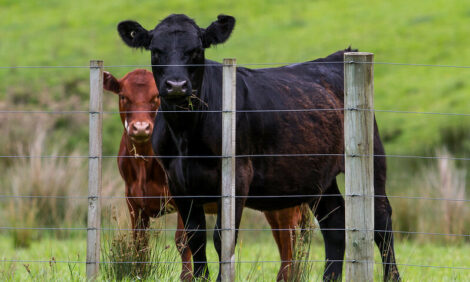



Korean Parliament Moves To Tighten Safeguards On U.S. beef
SOUTH KOREA - A group of 19 lawmakers Thursday submitted bills to tighten safeguard measures on beef and other agricultural goods imported from abroad.The bills introduced by the lawmakers of the minor opposition Democratic Labor Party and other parties aim to require all restaurants and school cafeterias to use beef and rice with country-of-origin labels; ban genetically modified food from school menus; ban the use of beef raised on offal; and ban the use of offal in feed production for animals like cattle and deer.
Using animal remains to make feed supplements for cattle has been linked to the spread of mad cow disease.
"If we can't prevent the import of beef that has a risk of mad cow disease, at least we should guarantee consumers with the right to know," Rep. Kang Ki-kap with the Democratic Labor Party said.
Currently, food hygiene standards are loosely applied to protect the industry. Among restaurants, only 2.7 percent are required to use food ingredients that have a country-of-origin mark because the food hygiene law applies to only those having a space larger than 300 square meters. Schools are entirely exempted from the law.
South Korea resumed the import of U.S. beef in late April after imposing a ban in December 2003 following the discovery of a case of mad cow disease in the U.S.
The ban was lifted in early 2006 on the condition that meat should be boneless beef from cattle under 30 months old.
Source: Yonhap News


